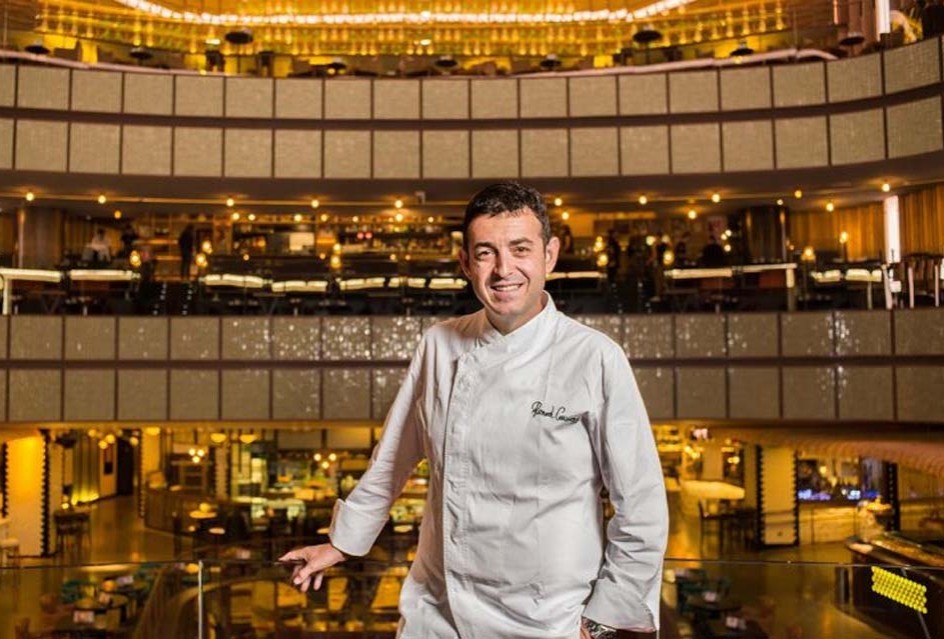"Flexibility" is for Ricard Camarena, the word of the moment: "I give up feeling like the mambo king. If I can't afford a product, I change it. The price of the menu has to cover the costs, not the chef's ego."
The news
With his five restaurants, including the eponymous one, which has been a candidate for a third star for years, Ricard Camarena is the undisputed star of the Valencian gastronomic scene. Born in 1974, he leads a small army of 150 employees and turns over about 7 million euros a year, as told to the newspaper Cinco Dias. "The brigade is made of people," he says. "You manage them for who they are, not what they do. I demand honesty, loyalty, and commitment from them. And I offer the same. Management is complicated; it's hard to feel that you're doing it right. I lead with principles and values, not feelings. The challenge is for all parts of the puzzle to feel this usefulness. Then you stop thinking about what others can give you and start thinking about what you can give them." 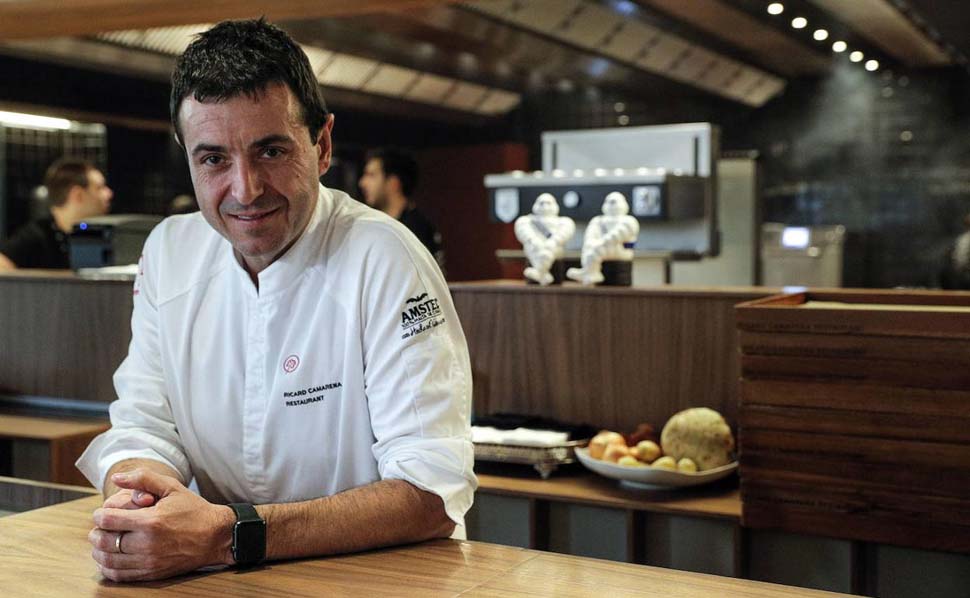 @EFE
@EFE
"There were times when I didn't feel happy, and that generated tension inside me. I would like everyone to like me, but they don't. If you don't separate what you do from who you are, you experience every criticism as an attack. Sometimes I even felt that what I was doing was meaningless. Staying costs money, as opposed to leaving, which is a very convenient exit. But if you leave, you take your problems with you. It's a matter of acceptance and self-recognition. The pandemic has taught me many valuable things. It represented a time of disconnection, recollection, we were with our families, less exposed than usual. I love what I do and sacrifice many things for it. But other people started asking questions about what they wanted to do, not working the 15 hours a day they were doing, dedicating themselves to one thing. Still, others have found a different vocation. Also, there is a greater need for labor in some cities because more clubs are opening, and the demand is higher."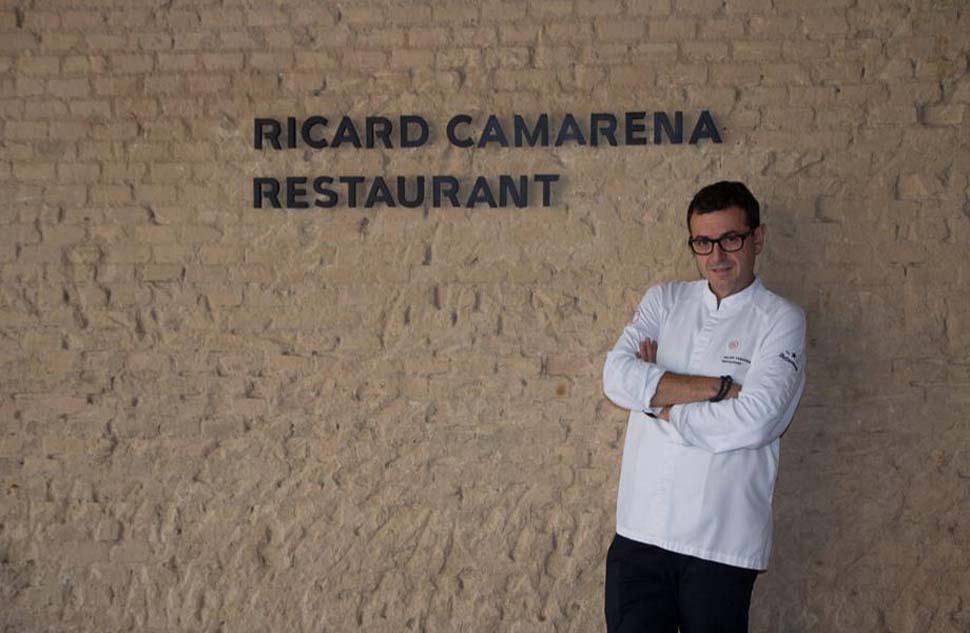
“Dobbiamo rendere il settore aspirazionale, generare le risorse perché appaia attraente e appassionante. Non possiamo rinunciare a tutto questo per una fetta di torta. Voglio lavorare meno ore possibili in modo più efficiente e fare cose che non valorizzino solo me. A volte ho idee che credo dovrebbero entrare in menu, ma sovvertirebbero tutti i piani. Allora penso a cosa comporterebbero i cambiamenti. Nuove elaborazioni, per esempio, potrebbero richiedere un lavoro supplementare. Quando ti credi il re del mambo, fai questo tipo di cose. Abbiamo pensato di dover offrire la miglior versione attraverso un menu aspirazionale, nonostante potesse generare tensioni. Io ora ci rinuncio, è importante che nella perfezione sia tutto equilibrato, in modo da offrire il meglio al cliente”.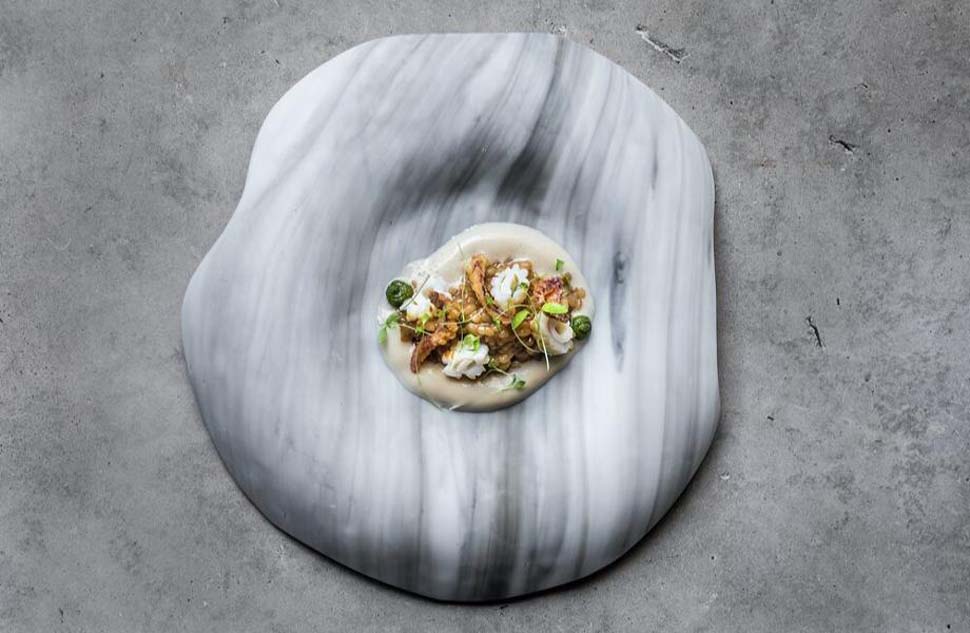
"I interpret this moment fluidly. If I can't afford a product, I change it. So do my guests. I still haven't raised the price of the menu; I've adjusted to avoid that. I know who my customers are and what time we live in. We have learned to improve management so that the price works for everyone, the public, businesses, and employees. We have a short menu of classics at 160 euros, which covers the cost of staff, energy, and rent. I don't raise the tasting because of ego or vanity but because it corresponds to our cost structure. I must cover costs, not the chef's ego. Increases should not be justified by the qualitative perception of our work but by the quantitative perception of what we do. This quest for flexibility is a daily struggle."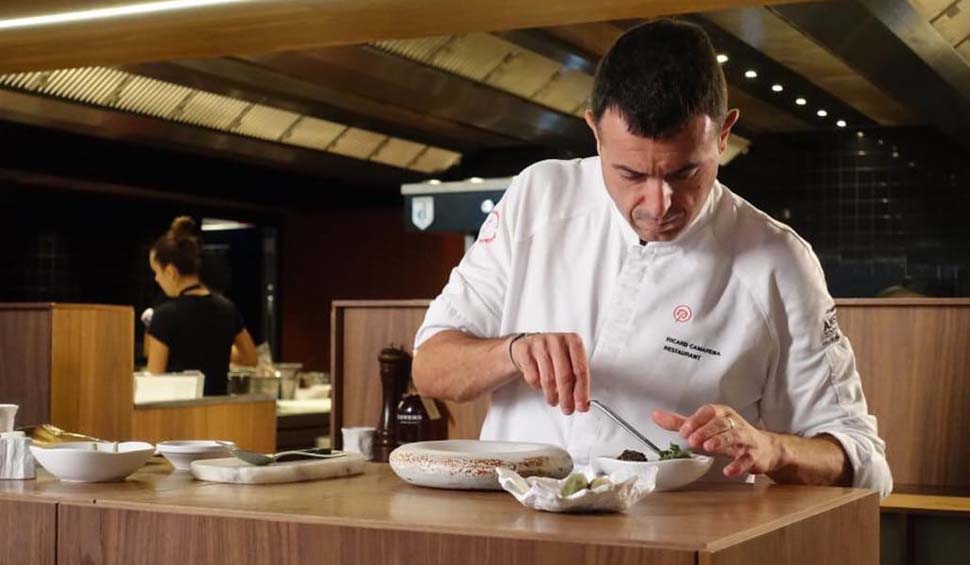
Source: Cinco Dias
Find the clickable article here
